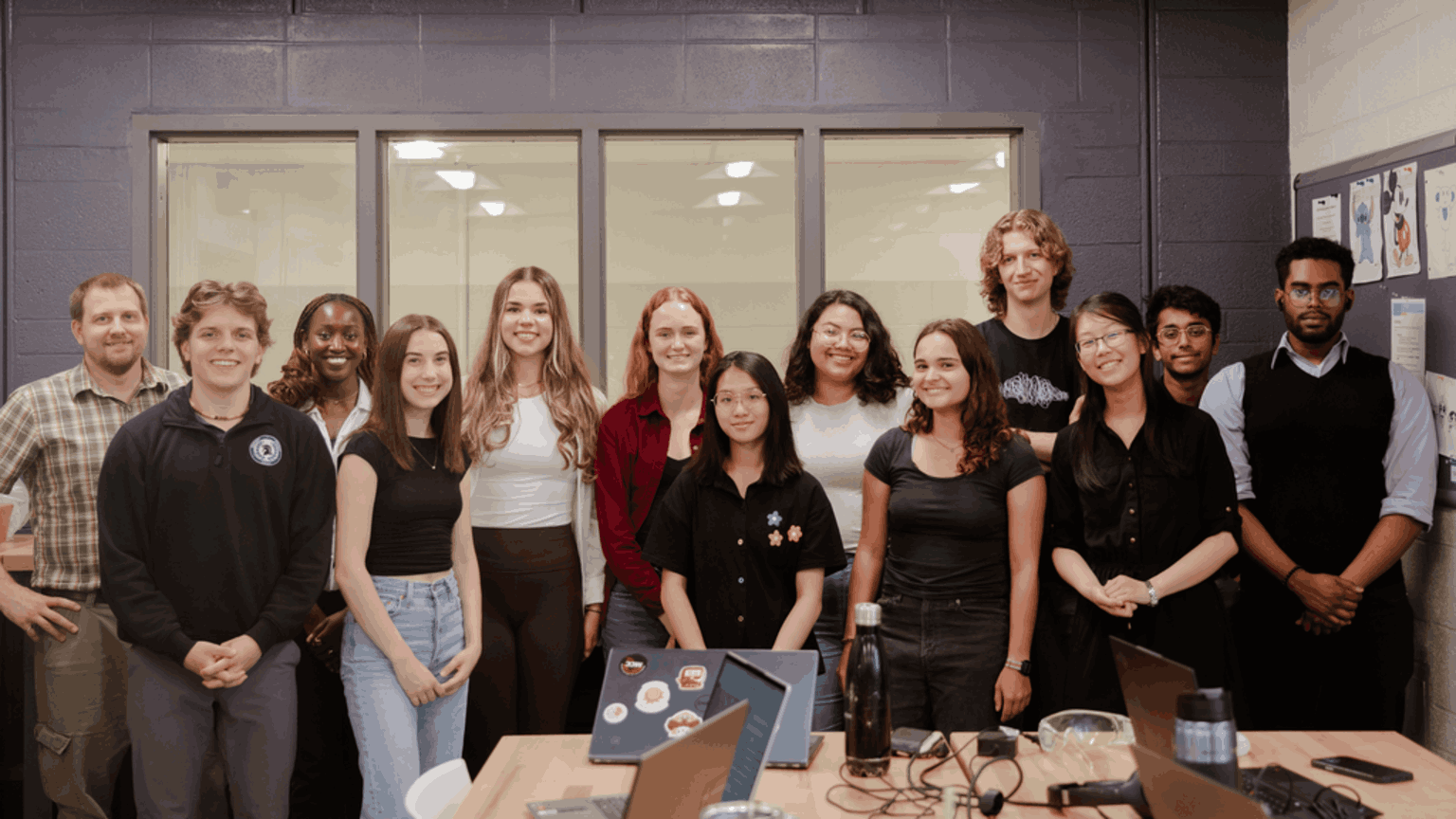
It’s a summer undergraduate research opportunity that sounds a bit like a band of Marvel characters. The first-ever cohort of Climate Action Research Scholars includes 12 students across disciplines in the Faculty of Engineering at McMaster University. Together, they’re developing their research skills to address a global threat.
Students are supported by mechanical engineering professor and energy expert Jim Cotton and integrated energy systems research engineer Kelton Friedrich. The students’ work is an integral part of McMaster’s Thermal Mapping for the Decarbonization of Building Heating project funded by the Natural Sciences and Engineering Research Council of Canada (NSERC).
“This is a transformative experiential learning opportunity for undergraduate students. This program is allowing them to develop technical and professional skills, see how their courses apply to solving grand challenges in the real world and sets the foundation for a career in engineering and hopefully climate action research.”
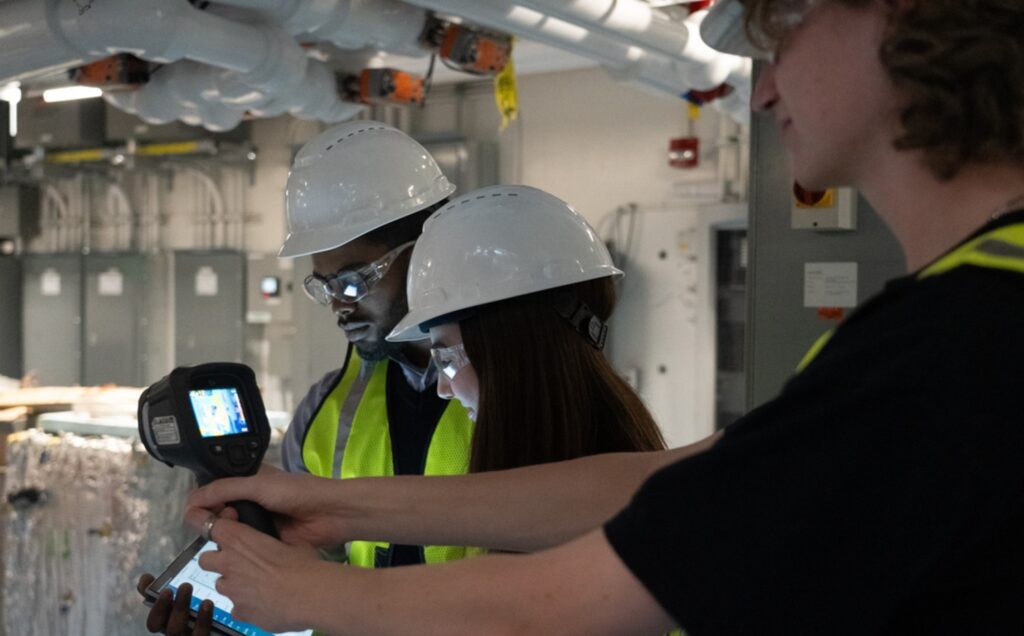
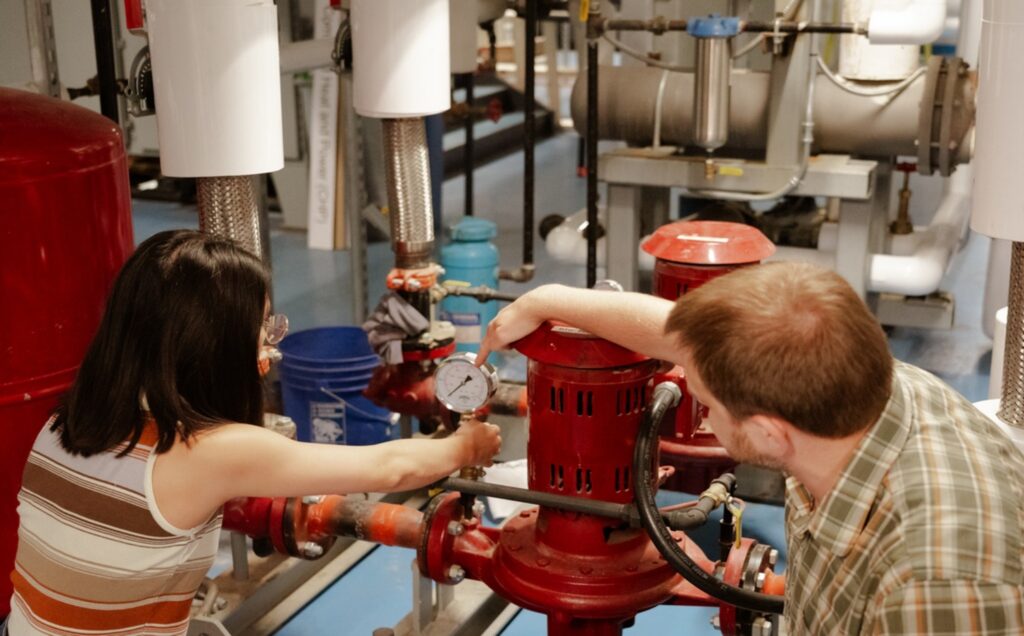
Climate Action Research Scholars are receiving hands-on learning opportunities with mentorship from graduate students. Together, they collect and process clean heat source and heating load data to be mapped for further analysis. This includes using thermal energy measurement equipment during site visits to mechanical rooms, utility data collection, data processing and cleaning and Geographic Information System (GIS) mapping. Over the course of four months, the students learn about HVAC systems, natural gas systems, the electricity grid and decarbonization planning.
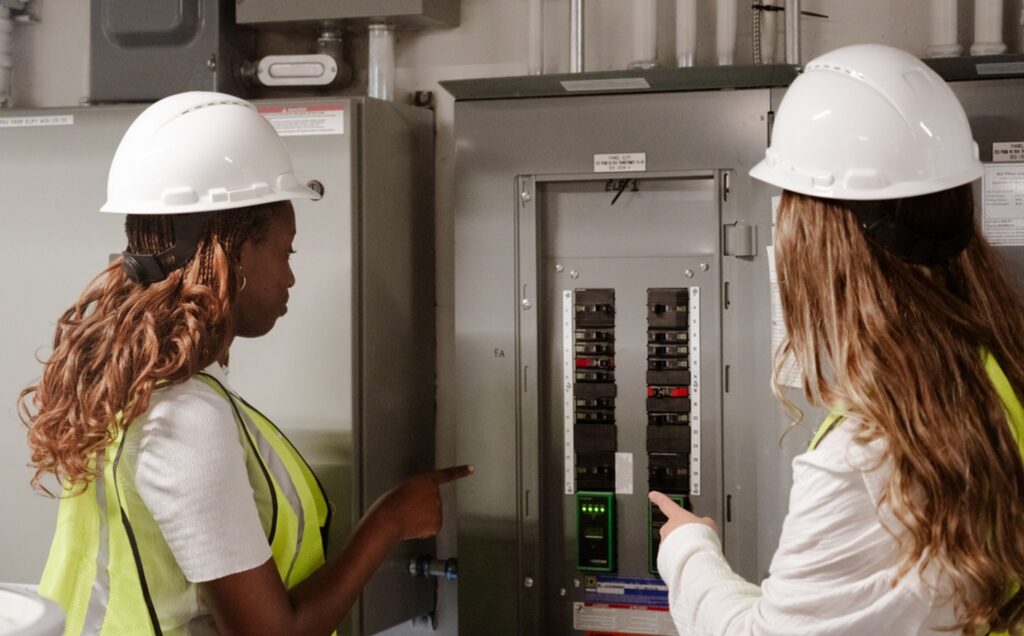
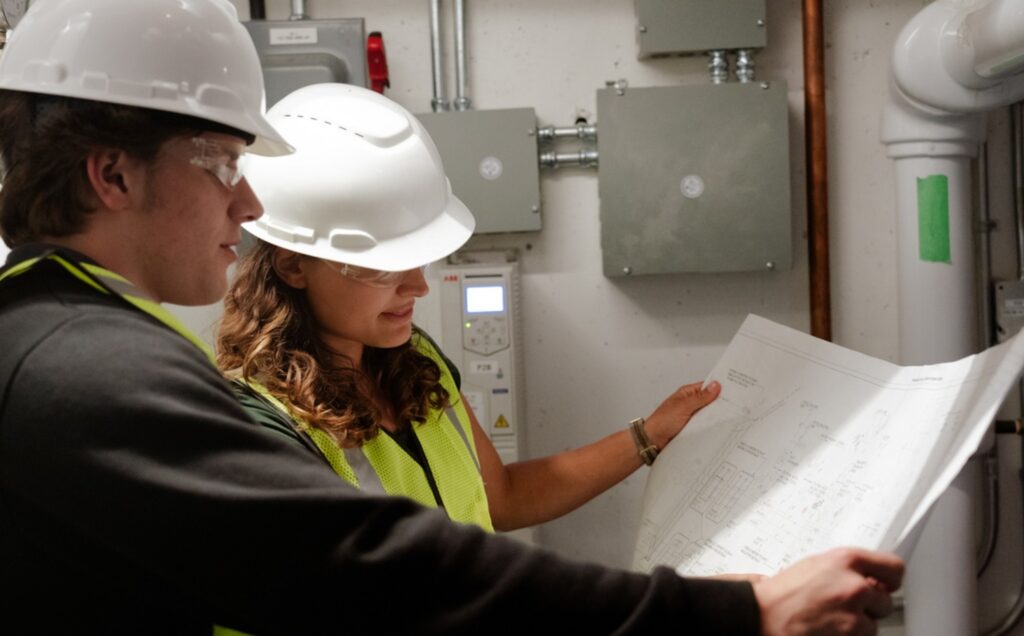
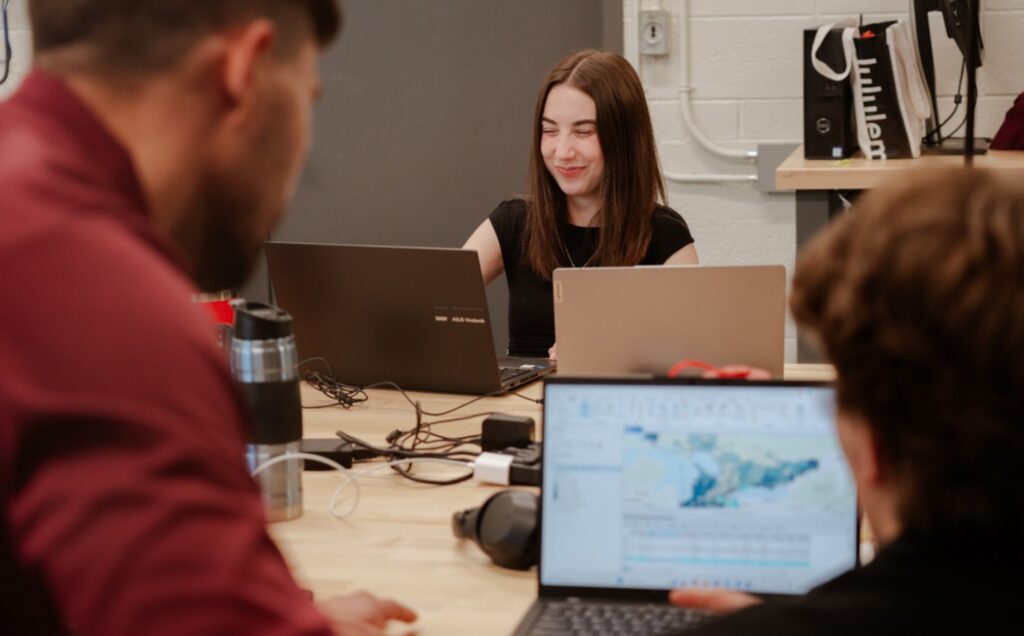
“As part of the data processing team, I’ve been learning different Python skills, which has been really valuable to understanding how my field of engineering is integrated in real-world applications,” says Sophia Chase, who is going into her third year of software engineering in the fall.
Outside of campus, the Scholars will be performing heating load and thermal resource energy audits of industrial, commercial, institutional and building cooling process heat at facilities across Hamilton, Halton Hills and Burlington. They’ll collect measurement and operation data needed to populate archetype databases and validate software models.
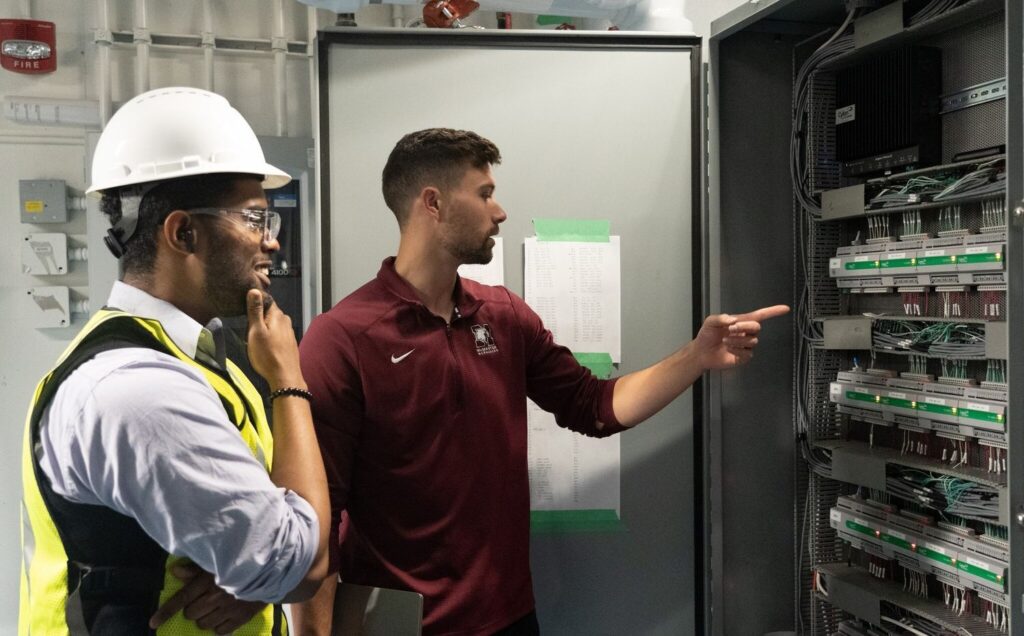
“The coolest thing I’ve learned so far in this research program is the underlying infrastructure of how the electrical grid works and how it provides energy to Ontario,” says Engineering Physics student Daryus Ramkalawan. “This program has made me consider graduate school and exploring further research in the energy field as a career. It’s ignited a new passion in me to carve a pathway that allows me to contribute to creating a healthier, more stable future for the environment and the world itself.”
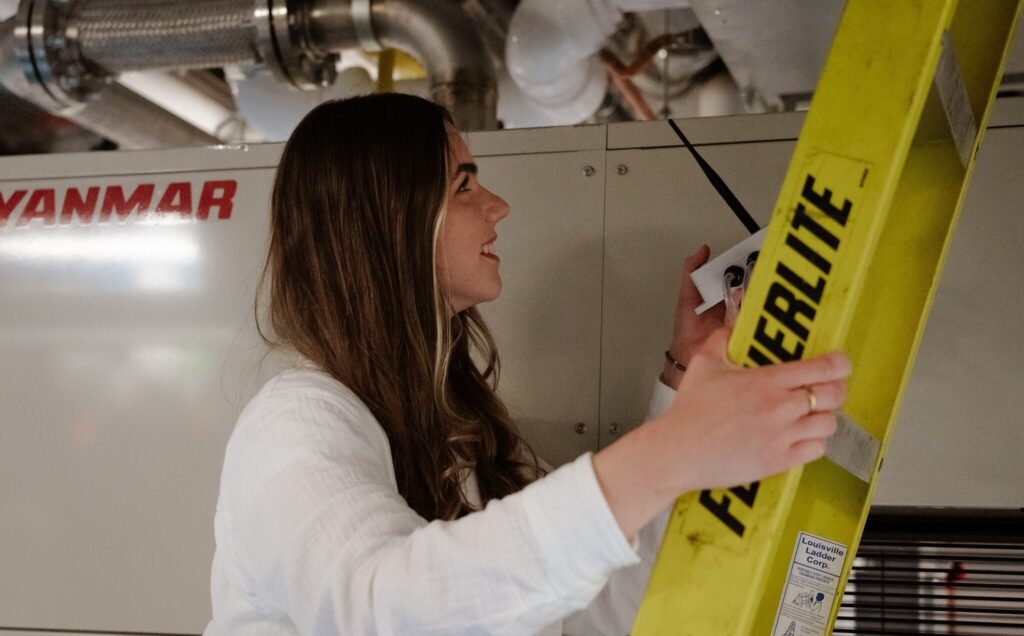
The opportunity to be part of advancing research on decarbonization of energy systems is significant for up-and-coming engineers, says electrical engineering student Milana Kalinic.
“Regardless of the discipline of engineering you’re in, it’s important to have an awareness of the environmental impact that your work is going to have on our climate,” she says. “We have a very diverse group of students on our team that are all going down different paths professionally, but what the Climate Action Scholars program has taught us is that we all have a critical role to play in the decarbonization of our energy systems. Every type of engineering can be optimized and executed in a way that prioritizes sustainability.”
Explore more undergraduate research opportunities at McMaster Engineering.
